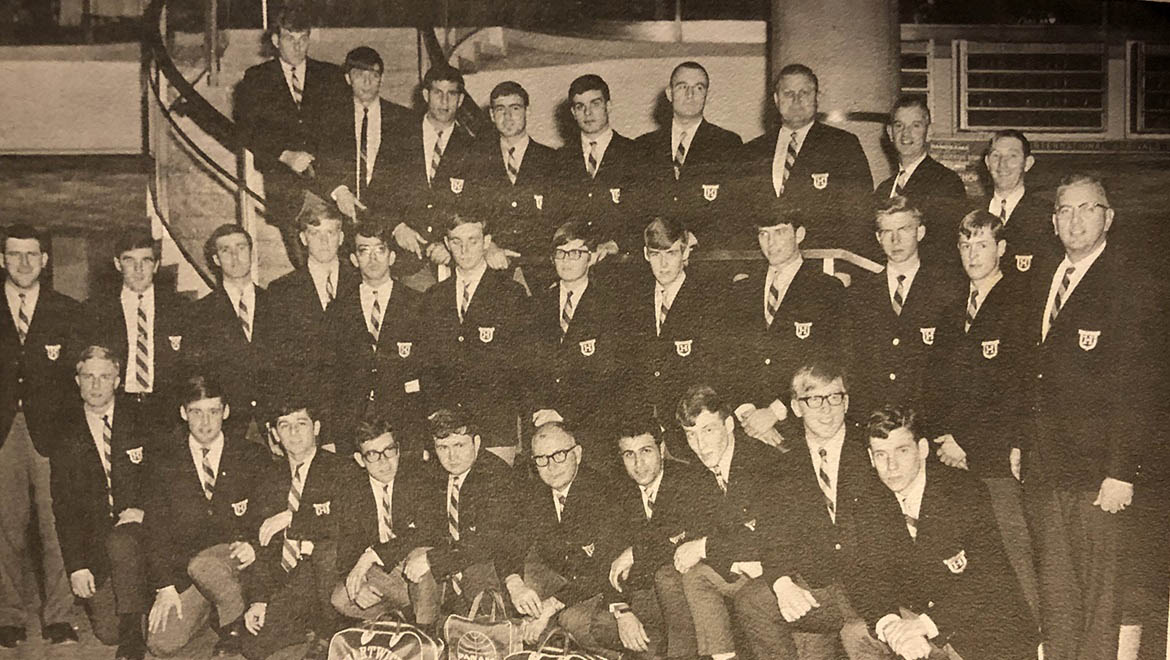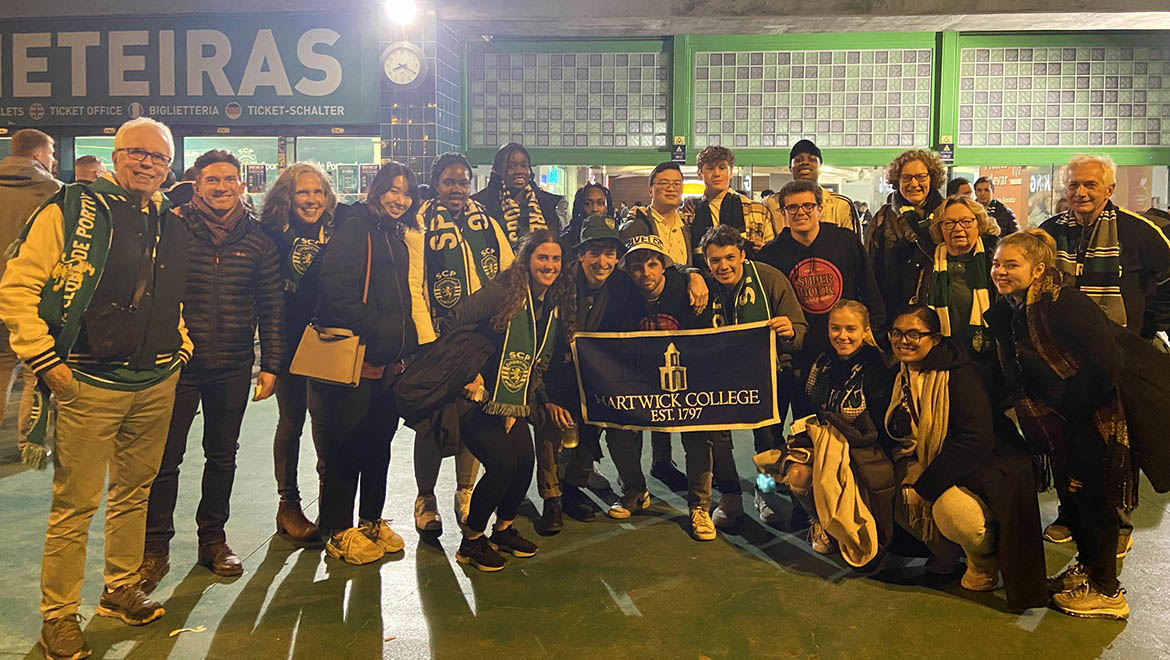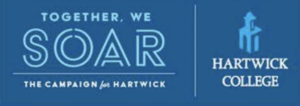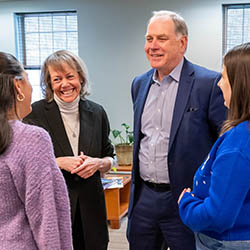Although a good student, his main interests were outside the classroom: athletics (playing and promoting soccer), and the Hilltops student newspaper. His efforts also led him to be recognized as the Circle K Club Outstanding Senior of the Year.
That year, Hartwick became the first American college soccer team to undertake a European tour. During Easter 1968, Head Coach Al Miller took the team on a 17-day, 14-game trek through five countries. Not only was it a first for the College, it gave
Marcos the bug that propelled him to launch his first company: American International Sports Exchange (AISE).
Soon after graduating, Marcos and AISE became the first full-time organizer of European tours for American collegiate soccer teams. He would arrange roughly 75 more trips over the next decade.
He also worked as a scout, scouring Europe and the UK for players to come to Hartwick. His efforts opened a pipeline of players — starting with Steve Jameson ’76, Duncan MacDonald ’78, and Jeff Tipping ’78 — who would impact the program for years and lead to Hartwick’s 1977 national championship.
Clearly, he knew the game and the pros took notice. The Tampa Bay Rowdies of the NASL tapped him to handle team public relations. This would begin an 11-year stint that also took Marcos to the Dallas Tornado and Calgary Boomers.
By the mid-1980s, his vision was to unite the disparate regional soccer leagues across the country into one entity. In 1986, the USL was born, starting with a five-team league in the Southwest. It evolved into a 200-team network of several connected minor leagues and a development system for U.S. Soccer. This set the stage for the creation of not only Major League Soccer but also the first U.S. women’s leagues.
When the 1994 Men’s World Cup came to the U.S., Marcos was naturally involved, working as a liaison for the Brazilian National Team. In 2007, he received the Werner Fricker Builder Award, U.S. Soccer’s most prestigious individual honor.
“If it weren’t for decisions (Marcos) made with respect to Major League Soccer when it was starting out in the mid-90s, the league would not exist today,” said Sunil Gulati, former president of the U.S. Soccer Federation. “I don’t mean wouldn’t exist with 29 teams, would not exist. Full stop. So, from everyone that’s involved in the game, not just the professional game but any part of the game, we owe Francisco a great debt of gratitude.”
Now living mostly in his native Portugal, Marcos is a special advisor to Sporting Lisbon, among the world’s best-known clubs.
The skillset he developed with their help and the opportunities he mined in Oneonta served him well on his journey to American soccer immortality.





